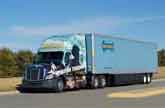| |
|
| |
|
 |
Supply
Chain by the Numbers |
| |
|
| |
- June 20, 2019 -
|
| |
|
| |
|
| |
|
| |
Apple Pulling Some Production Out of China; New York Set to Pass Groundbreaking Emissions Law; UAW Strikes Out Again at Volkwagen; Truckload Rates Finally Moderating |
| |
|
| |
| |
| |
| |
15-30% |
|
That is the percent of its current production in China that Apple would like to move to other countries, according to a report from Nikkei Asian Review this week. Apple's request was a result of the extended China-US trade dispute, but even if a trade resolution is soon reached it will not lead to a change in the company's decision, Nikkei said, citing multiple sources. Apple has decided the risks of depending heavily on manufacturing in China are too great and even rising, it said. A number of current assemblers, including Foxconn, Pegatron Corp. and several others, have been asked to evaluate options outside of China, the report said. Alas, though Apple may move away from China, that doesn't mean production coming back to the US. Nikkei said the countries being considered include Mexico, India, Vietnam, Indonesia and Malaysia, with India and Vietnam are among the favorites for smartphone. |
|
|
| |
| |
|
|
|
That is the percent of about 1700 workers at the Volkswagen plant in Chattanooga that voted against joining the United Auto Workers union, meaning the UAW was defeated at the plant for the second time in five years. The vote was a little closer – 53.2% voted no in 2014. That continues the string of losses the UAW has seen trying to organize the US plants of foreign automakers for many years without any success. Most but not all of those plants are in the more anti-union Southern states. The UAW again battled hard to win the vote at VW, releasing an onslaught of TV, radio, print and digital advertising that flooded the area over the past few weeks. But in the end it wasn't enough again. |
| |
| |
|
| |
| |
1.2% |
 |
That was the modest year-over-year rise in the Cass Linehaul Index for May. The Index measures US per mile truckload rates before fuel surcharges and other accessorial costs. With a perhaps slowing economy – the data is mixed – trucking costs have certainly moderated after a torrid 2018, in which year-over-year gains were 5% or more each month. In 2019, rates are still up, but in the low single digits. Rates though have now been up every month since starting to rise in Nov. 2017. At an index level of 135.3, it means rates are up 35.3% since the baseline month of January 2005. The index has a lot of credibility, as it is based on some $28 billion in freight bills paid annually by Cass.
|
| |
| |
| |
| |
| |
|
|
|
| |
 |
 |
| |
|
|
| |